Restorations - 12 'brownfield' sites earmarked for thousands of homes in Sheffield to ease housing crisis
and live on Freeview channel 276
The city council has earmarked seven previously-used plots which could provide 2,836 homes - houses and flats - in areas including Neepsend, Park Hill, Attercliffe and West Bar.
A further five are being worked up in Kelham Island, the Devonshire Quarter, Shirecliffe, Attercliffe and Norfolk Park.
Advertisement
Hide AdAdvertisement
Hide Ad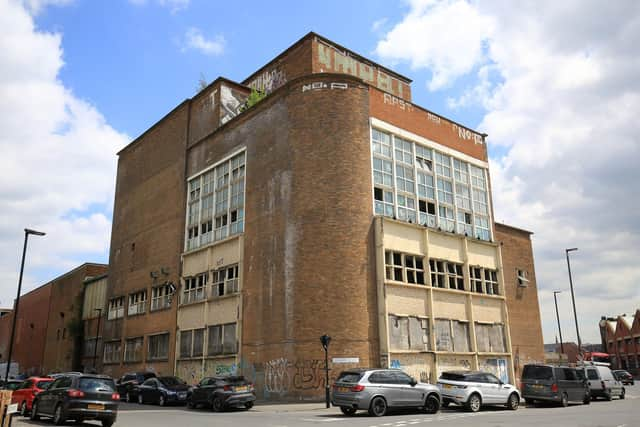

The authority is bidding for more than £14m to buy old buildings and pay for clean-ups, demolition and revamps to kickstart schemes on land that in some cases has been derelict for years.
The cash is from the Government's Brownfield Housing Fund and administered by the South Yorkshire mayor’s office. It received £40m in 2020 and a further £13.45m this month to pay for projects across the county.
WHY IS SO MUCH TAXPAYERS’ CASH NEEDED?
Ministers have set Sheffield a target of building more than 53,000 homes by 2039.
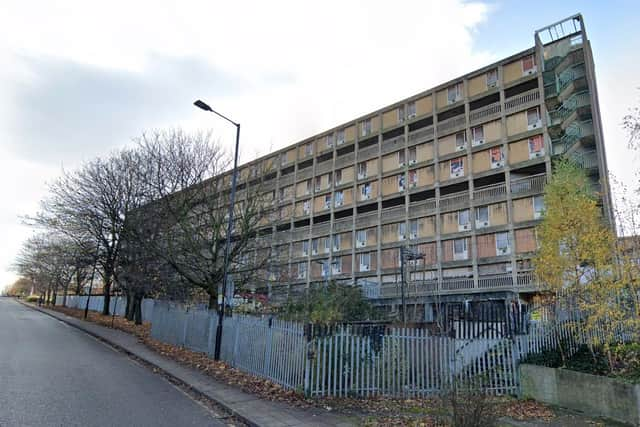

Sheffield architect and house builder David Cross said there were ‘literally no’ plots in the popular south west of the city.
Advertisement
Hide AdAdvertisement
Hide AdIn the east there was an ‘abundance’ of brownfield land - but new homes were often unviable because build costs were more than sales values - so grants were needed before projects could start.
If approved, the initial seven Sheffield sites would create:
902 homes at Attercliffe Waterside: £4.08m grant for ‘enabling works’ as part of £205m scheme
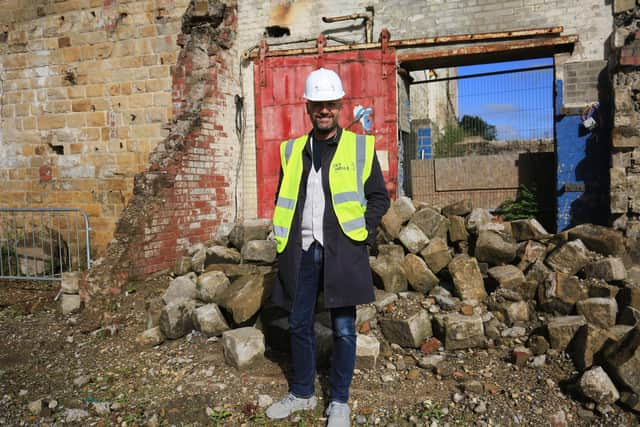

700 homes at Hoyle Street: £1.2m for ‘acquisition and assembly of land’
Advertisement
Hide AdAdvertisement
Hide Ad450 homes at Cannon Brewery, Neepsend: £2.26m for ‘acquisition and preparatory’ work
369 homes at West Bar: £655,000 for highways and infrastructure work
95 homes at Park Hill: £5.6m to ‘enable the delivery’ of a £26.5m revamp of the block on Duke Street
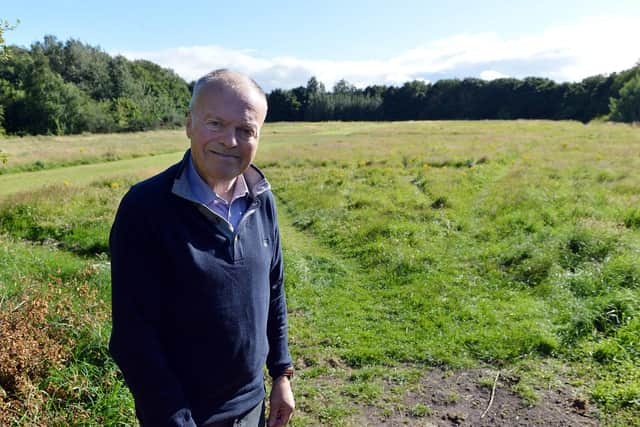

120 homes at Allen Street: £434,000 for ‘acquisition and preparatory’ work
200 homes at Porter Brook: £350,000 for demolition
Advertisement
Hide AdAdvertisement
Hide AdReports also name five other schemes: ‘Devonshire Quarter’, ‘Norfolk Park 10’, ‘Shirecliffe 2’, ‘Attercliffe: Workshop Road/ Titterton Close’ and ‘Little Kelham’.
The Star contacted Sheffield City Council and the mayor’s office for more details.
WHY COULD MONEY BE CLAWED BACK?
But tight Government deadlines are causing problems. Some £20m has to be spent by this month or it could be clawed back.
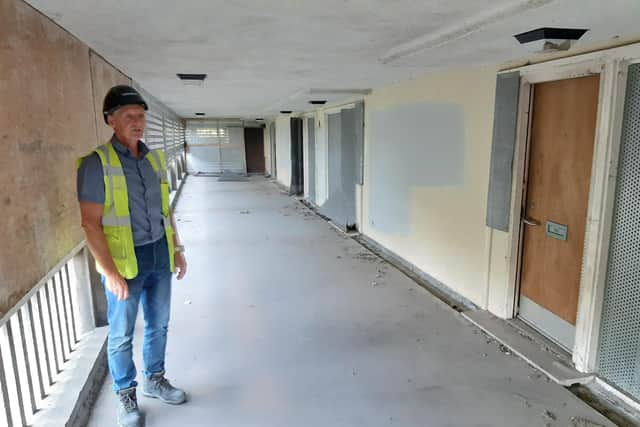

In January, mayoral officials were warning they could lose £17m due to the ‘slippage’ of plans.
Advertisement
Hide AdAdvertisement
Hide AdThey had hit ‘profound challenges’ in designing schemes that delivered quality houses while still being value for money, as measured by the Government.
Officials were ‘engaging’ with government to seek flexibilities noting ‘the strong pipeline of schemes that are now progressing’.
A report to the MCA Housing and Infrastructure Board meeting on Tuesday (March 15) updates progress stating that ‘approved commitments’ were now £17.6m against the £20m target.
BUSINESS NEWS: Historic hunting lodge has one last shot at survival
Mr Cross, architect and director at Sheffield-based builders Sky-House, said he supported grants for brownfield sites.
Advertisement
Hide AdAdvertisement
Hide AdHe added: “It can be tricky to stack up - we have lots of former industrial works that may be in family ownership for decades with old engineering works in rundown buildings.
“Trying to relocate businesses to newer buildings and moving heavy machinery is expensive and complex again.
“We have a planning system that ‘taxes’ permissions with the community infrastructure levy, affordable housing and other section 106s that all add to the build costs, reducing viability.
“Couple that with asbestos removal, demolition and removing pollutants in the ground you can see why so many developments stall after much PR fanfare.
Advertisement
Hide AdAdvertisement
Hide Ad“I support grants for brownfield regeneration. However, I would couch this by saying that some private landowners will benefit from these grants when in reality their land value should be nil or even minus!
“I would support assistance in Attercliffe where we have a serious opportunity to create a major new urban village with all the right ingredients - a canal, tram, word class new facilities around the Olympic Legacy Park and more.
“Salford Quays reinvented itself with major ambition and I can’t see why Attercliffe can’t do the same.
“Reopening rivers, assembling land for delivery or cleaning up land to reduce risk should be encouraged. Similarly, enabling the infrastructure for development should be encouraged. This is central government funding and should be used while we have it!
Advertisement
Hide AdAdvertisement
Hide Ad“If grants can help make our city develop quicker and more beautifully this in turn will attract the higher end jobs which can help reverse the circular issue.”
ARE GRANTS ALWAYS NEEDED?
Taxpayer funded grants were not always needed, he added.
Sky-House developments include homes on the former Orgreave Coking works at Waverley, Rotherham, and the former Oughtibridge Mill.
It has also lodged a full planning application for 50 back-to-back houses and apartments on the site of the former Stokes Tiles warehouse on Egerton Street, part of a ‘Mesters Village’ concept in the city centre.
Mr Cross said none had received ‘a single penny of support’.
Advertisement
Hide AdAdvertisement
Hide Ad“Each project is assessed for risk and costs and the appropriate price for the land is paid but every job is a challenge and the role for the city and the developer as a partnership should be encouraged,” he said.
“We need thousands of new homes in the centre and I would love to see more of this supported and faster!”
Neepsend Brewery was launched in 1838, when much of the area was back-to-back housing. In 1868, William Stones purchased the lease and renamed it Cannon Brewery.
Stones Bitter was brewed on the site from 1948. Popular with steelworkers, at its peak it produced 30,000 barrels each year. It closed in April 1999 and has remained unoccupied since.
Advertisement
Hide AdAdvertisement
Hide AdRedevelopment of the area was hit by flooding in June 2007, when the River Don burst its banks, and the global financial crash from 2008.
The site’s owner, Sheffield business Hague Plant, was granted permission to demolish the buildings in 2015, but work never started.
Now it could be 450 homes.
